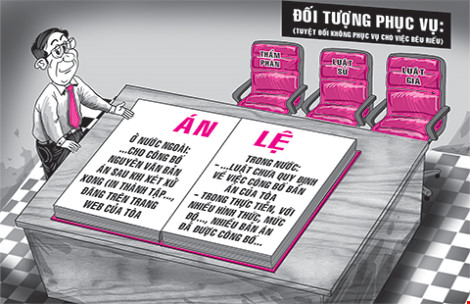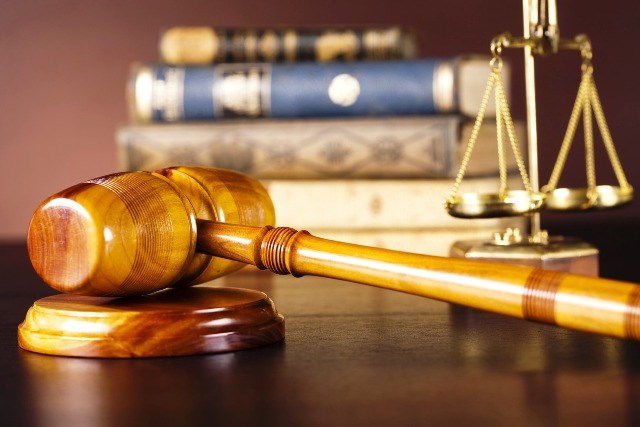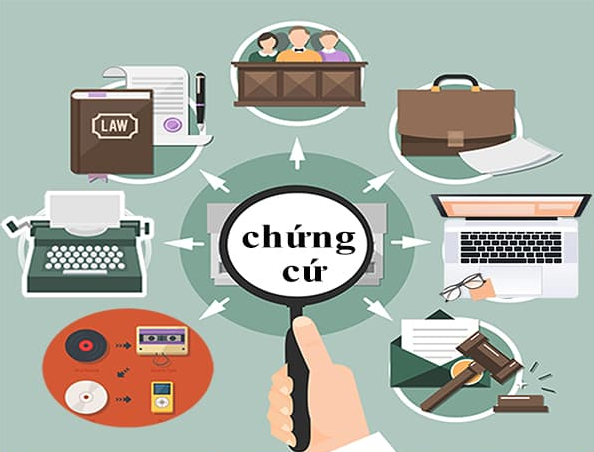What are the regulations on sources of evidence in civil proceedings in Vietnam? - To Trinh (HCMC, Vietnam)

Regulations on sources of evidence in civil proceedings in Vietnam (Internet image)
1. Sources of evidence in civil proceedings in Vietnam
In Article 94 of the Civil Procedure Code 2015, the source of evidence is as follows:
Evidences are gathered from the following sources:
- Readable, audible or visible materials, electronic data;
- Exhibits;
- Involved parties' testimonies;
- Witnesses' testimonies;
- Expertising conclusions;
- On-site appraisal minutes;
- Property evaluation and price appraisal results;
- Written records of legal facts or acts that are formulated by functional persons;
- Notarized/authenticated documents;
- Other sources prescribed by law.
2. Identifying evidences in civil proceedings in Vietnam
Article 95 of the Civil Procedure Code 2015 provides for the identification of evidence as follows:
- Contents-readable materials shall be regarded as evidences if they are originals or copies lawfully notarized or authenticated or supplied and certified by competent agencies or organizations.
- Audible, visible materials shall be regarded as evidences if they are presented together with documents about the origins of such materials (applicable to materials recorded by the presenting persons themselves) or the documents certified by the one providing such materials for the presenting persons about the origins of those materials or documents related to such audio and/or video recording.
- Electronic data shall be presented in form of exchange of electronic data, electronic invoices, electronic mails, telegram, telegraphy, facsimile and other similar forms according to legislation on electronic transactions.
- Exhibits to be regarded as evidences must be the original and related to the cases.
- Involved parties' testimonies, witnesses' testimonies shall be regarded as evidences if they are recorded in writing or in audio-tapes, audio-discs, or video-tapes or discs or other audio or image recording devices as provided for in Clause 2 of Article 95 of the Civil Procedure Code 2015, or are given orally in Court sessions.
- Expertising conclusions shall be regarded as evidences if the expertise is conducted in accordance with the procedures prescribed by law.
- On-site appraisal minutes shall be regarded as evidences if the appraisal is conducted in accordance with the procedures prescribed by law.
- Property evaluation results and price appraisal results shall be regarded as evidences if the evaluation/appraisal is carried out in accordance with the procedures prescribed by law.
- Written records of legal facts or acts that are formulated on site by functional persons shall be regarded as evidences if the formulation of such records is carried out according to the procedures prescribed by law.
- Notarized/authenticated documents shall be regarded as evidences if the notarization/authentication is conducted according to the procedures prescribed by law.
- Other sources prescribed by law shall be determined to be evidences according to requirements and procedures prescribed by law.
3. Hand-over of materials and evidences in civil proceedings in Vietnam
Article 96 of the Civil Procedure Code 2015 stipulates the hand-over of materials and evidences as follows:
- During the process of resolving civil cases by courts, the involved parties shall have the rights and obligations to hand over materials and evidences to the courts. If the handed materials/evidences are inadequate to form the base for resolution of the matters/cases, the Judge shall request the involved parties to supplement the materials/evidences.
If the involved parties fail to hand over the materials/evidences or do not hand over adequately the materials/evidences requested by the Courts, the Courts shall resolve the civil cases pursuant to the materials and evidences handed over by the involved parties and those collected by the Courts according to regulations in Article 97 of Civil Procedure Code 2015.
- The hand-over of materials/evidences to Courts by involved parties must be recorded in the minutes.
The minutes must clearly state the appellations, forms, contents, characteristics of the materials/evidences;
The number of copies, the number of pages and time of reception;
The signatures or append finger prints of the deliverers, the signatures of the recipients and seals of the courts.
The minutes must be made in two copies, one of which shall be incorporated in the civil case files and the other shall be handed to the involved parties handing over the evidences.
- The materials/evidences submitted in ethnic minority languages or foreign languages to Courts by the involved parties must be enclosed with their Vietnamese translations that are lawfully notarized or authenticated.
- Deadline for handing over materials and evidences shall be defined by the Judges in charge of the cases provided that such time does not exceed the duration of preparation for adjudication according to first-instance procedures and/or the duration of preparation for resolution of civil matters according to regulations in this Code.
If the Courts request the involve parties to hand over materials and evidences but the involved parties fail to comply with due to good and sufficient reason and supply the required materials and evidences when decisions to bring the cases to trial according to first-instance procedures and the decisions to hold meetings to resolve the civil matters have been issued, such involved parties must prove the reasons for the lateness of supply of such materials/evidences.
Regarding materials and evidences which the Courts did not request the involved parties to supplied or materials and evidences that the involved parties cannot know about during the resolution of the cases according to first-instance procedures, the involved parties may supply and present such materials/evidences in first-instance trial sessions or the meetings for resolving civil matters or later procedural stages of the resolution of such civil cases.
- When materials and evidences hand over to the Courts, there must be their copies sent to other involved parties or lawful representatives or other involved parties; regarding materials and evidences specified in clause 2 Article 109 of Civil Procedure Code 2015 or materials and evidences whose copies cannot be made, written notifications must be sent to other involved parties or lawful representatives of other involved parties.
4. Verification and collection of evidences in civil proceedings in Vietnam
Article 97 of the Civil Procedure Code 2015 stipulates the verification and collection of evidences in civil proceedings as follows:
- Agencies, organizations and individuals may collect materials and evidences themselves by taking the following measures:
+ Collecting readable, audible or visible materials, electronic data;
+ Collecting exhibits;
+ Defining witnesses and collecting confirmation of the witnesses;
+ Requesting the agencies, organizations or individuals to allow the copy or to supply the materials related to the resolution of the matters/cases that are kept or managed by such agencies, organizations or individuals;
+ Requesting the People’s Committees of communes to authenticate the signatures of the witnesses;
+ Requesting the Courts to collect materials and evidences, in case the involved parties cannot do it;
+ Requesting the Courts to issue the decisions on request for expertise or property evaluation;
+ Requesting agencies, organizations and individuals to conduct other tasks as prescribed by law.
- In cases prescribed by this Code, the Courts may take one or a number of the following measures to collect materials and evidences:
+ Taking testimonies of the involved parties, witnesses;
+ Holding confrontations between involved parties and between involved parties and witnesses;
+ Requesting expertises;
+ Conducting property evaluation;
+ Conducting on-site inspection and appraisal;
+ Entrusting the collection and verification of documents and evidence;
+ Requesting agencies, organizations and individuals to supply readable, audible and visible materials or other exhibits related to the resolution of civil cases;
+ Verifying the presence or absence of the involved parties at the residence;
+ Other measures according to regulations in Civil Procedure Code 2015.
- When applying the measures specified in Points c, d, dd, e, and, Clause 2 of Article 97 of the Civil Procedure Code 2015, the Judges must issue decisions clearly stating the reasons for the application and the request of the courts.
- In the process of cassation trial, reopening trial, the Ombudspersons may take the measures specified in points a, g and h clause 2 of this Article.
When the ombudspersons take the measures specified in Points g Clause 2 of Article 97 of the Civil Procedure Code 2015, the Courts must issue decisions clearly stating the reasons for the application and the request of the courts.
- Within 03 working days from the day on which the Courts collected the materials/evidences, the Courts shall notify the involved parties of those materials/evidences so that they can exercise their rights and obligations.
- The procuracy shall collect materials/evidences to ensure the exercise of appeal jurisdiction according to the appellate, cassation trial or reopening trial procedures.
Ngoc Nhi
 Article table of contents
Article table of contents








.Medium.png)
.Medium.png)
.Medium.png)
.Medium.png)
